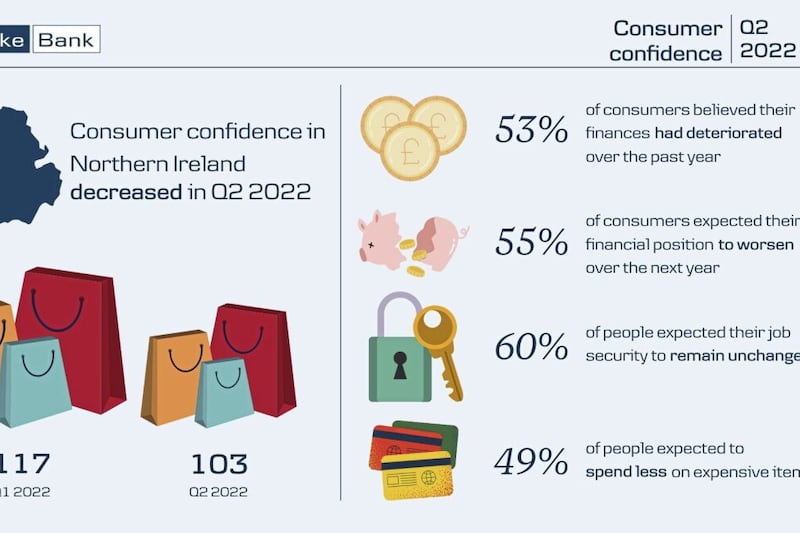CONSUMER confidence in Northern Ireland dipped to its lowest level in seven years in the first quarter of this year as people revealed they won't be spending on big-ticket items like cars, holidays and home improvements.
And the situation is certain to deteriorate further, as the data gathered in the latest survey by Danske Bank was gathered before the full lockdown in late March.
Worries around personal finances, the general health of the economy and a decline in buying intentions led to the bank's quarterly consumer confidence index dipping to 119 in the January-March period, down from 129 in the fourth quarter of 2020and significantly below the reading of 139 in the first quarter of 2019.
When asked what factor had the largest negative impact on their confidence levels, 43 per cent of respondents pointed to global risks, which can be attributed to the coronavirus pandemic.
More than a third (36 per cent) expect their finances to worsen over the next year, compared with 20 per cent who believe they'll improve.
And total spending is expected to plunge, with household expenditure on the purchase of cars, clothing, furniture, eating our and on holidays all likely to fall off a cliff.
But other household spending may temporarily increase in some categories such as food and drink, take away meals, cleaning materials, toiletries and soap, along with TV subscriptions, books and games.
Danske Bank chief economist Conor Lambe said: “The coronavirus pandemic was the main factor that contributed to the fall in confidence levels in the first quarter, with notable declines in sentiment relating to how people felt about their future financial positions, job security and spending on expensive items.
“Given the measures put in place in response to the virus, households are likely to spend their money differently to how they normally would.
"The areas in which spending might temporarily increase are not expected to be anywhere near enough to offset the falls in expenditure on other goods and services, and we are projecting that total consumer spending will decline sharply in Northern Ireland as a result of the pandemic.
“But looking forward, confidence levels are one of the factors that will influence the pace of the recovery in consumer spending once the lockdown measures begin to be gradually lifted.”
The survey also revealed that Brexit remains an area of concern, with 10 per cent of people saying that the status of the negotiations had adversely impacted them, and a further 11 per cent stating that the government’s longer-term Brexit objectives has had a negative impact on sentiment.
But on the flip side, 23 per cent said the return of the Stormont Executive had lifted their mood and made them feel more confident.









